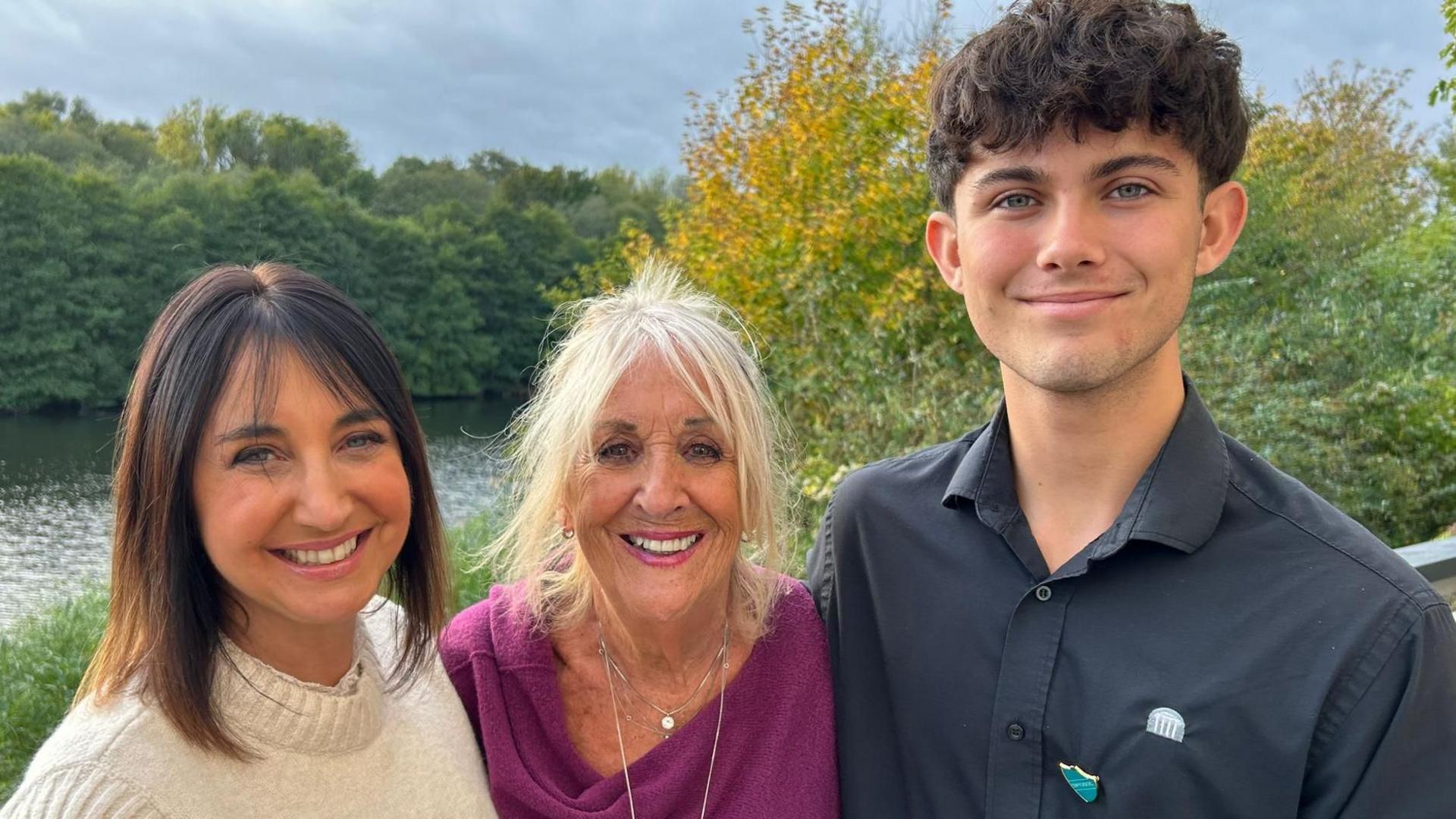'National funding' needed to get people back to work
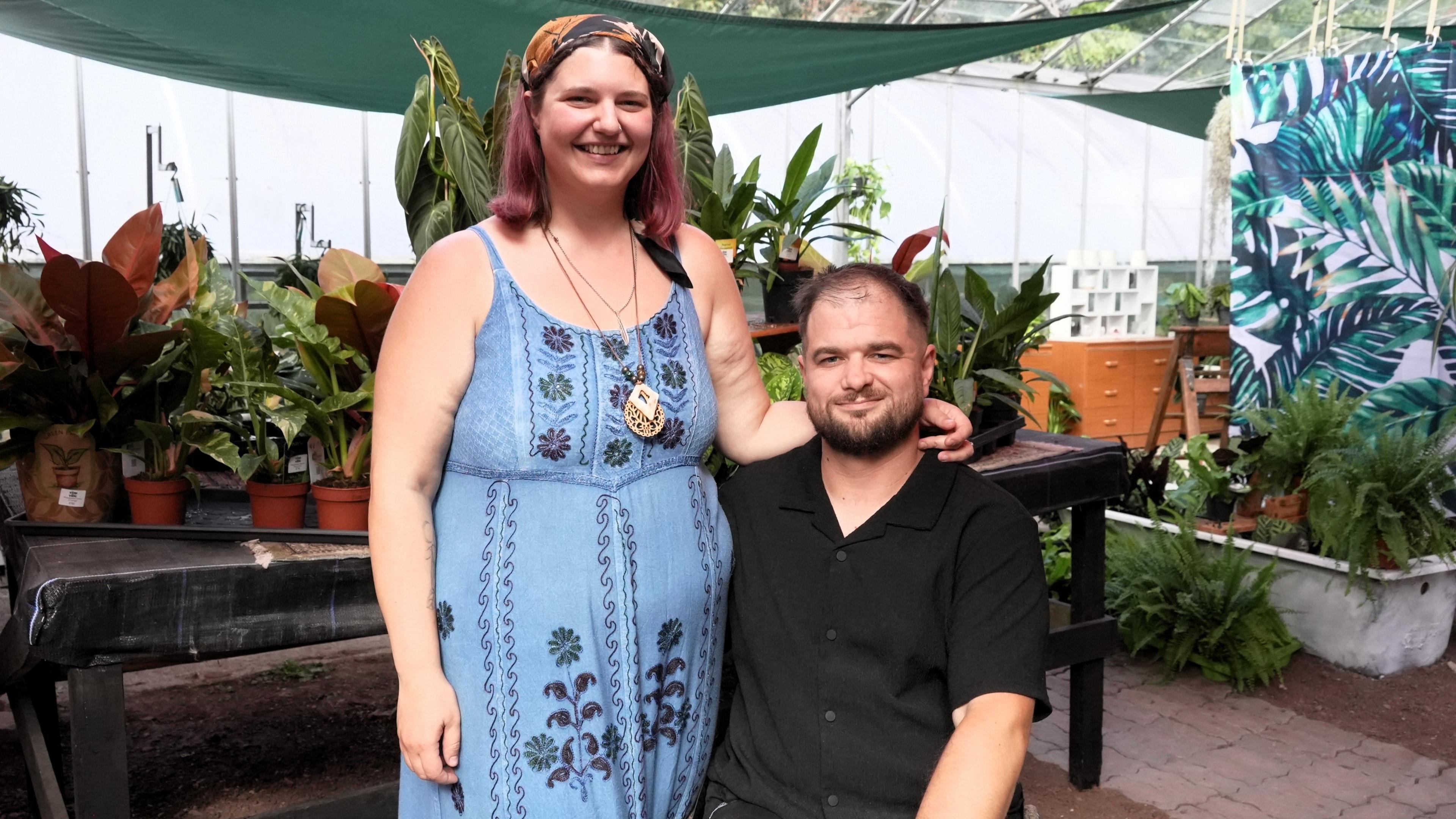
Beckie and Kristian Howell were determined not to rely on disability benefits
- Published
When Kristian Howell broke his back in a farming accident, he and his wife Beckie said they could have "quite easily and comfortably" lived on disability benefits.
But "that wasn't us" said Kristian, as the couple have just opened a houseplant centre in Pembrokeshire.
While it took years of care and recovery, and the support of a business mentor, the Howell family were determined to return to work.
Wales has a stubbornly high rate of economic inactivity with calls to increase the help available to support people back into employment.
Who are the millions of Britons not working?
- Published26 March
'The only thing stopping me working is childcare'
- Published18 February
Stretched job centre staff struggling to get disabled people into work
- Published7 October
Kristian was working on a dairy farm in Red Roses, Carmarthenshire, in 2017 when he fell from height and broke his back.
"It was September 9th, my sister's birthday," he recalled.
The injury led to him being paralysed from the waist down, breaking a vertebrae and irreparably damaging the spinal cord.
"You can fix the spine, but you can't fix the cord," he said.
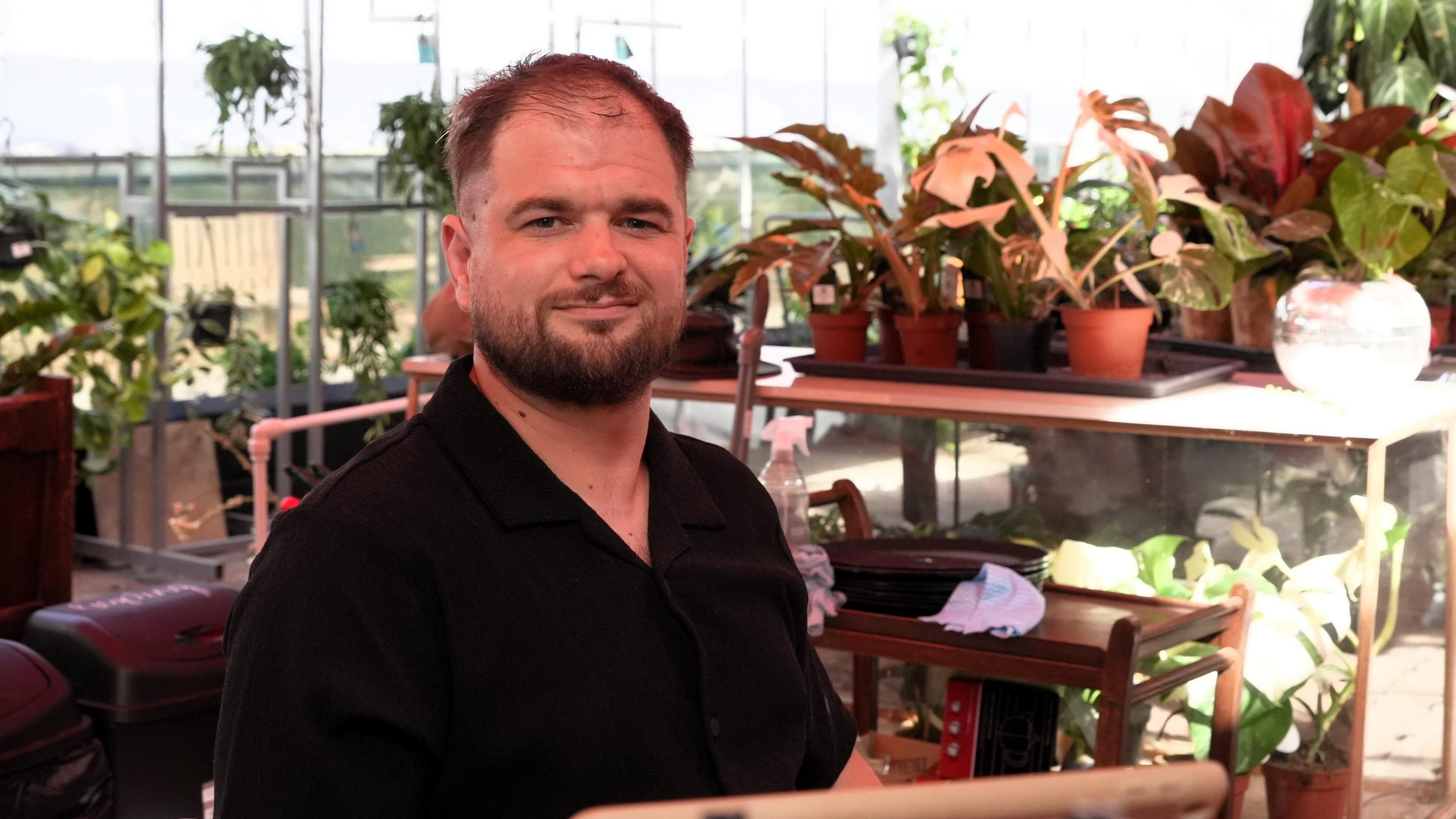
"You can work, earn money and have a better life," says Kristian
Unable to consider returning to his previous job, Kristian and Beckie spent years focusing on recovery and rehabilitation. But both wanted to escape a life on disability benefits.
"We could have quite easily and comfortably not worked, and lived off the benefits that we'd received," Beckie said. "We had a discussion and decided that's not how we wanted to move forward."
Kristian added: "I've got a 15-year-old daughter as well, and we wanted to show her you can work, earn money and have a better life."
It was a struggle to get started in business. The couple received a £20,000 start-up loan from the British Business Bank but said other lenders would not consider them.
"We don't look great on paper, financially," said Beckie. "Neither of us have bad credit, but we just didn't have any money."
A mentor from the bank advised them on the process of establishing the business, and was central to their journey back into work after depending on benefits since 2017.
Elsewhere there are calls for better support for people who find themselves out of work.
In Wales, the latest statistics show 25.6% of people aged 16-64 are deemed to be economically inactive for reasons such as long-term illness, having caring responsibilities or taking early retirement.
"The demand is there, but the funding isn't enough to meet that demand," Rhys Lloyd said. His company, Whitehead Ross Education, delivers training workshops to help re-skill people who are out of work.
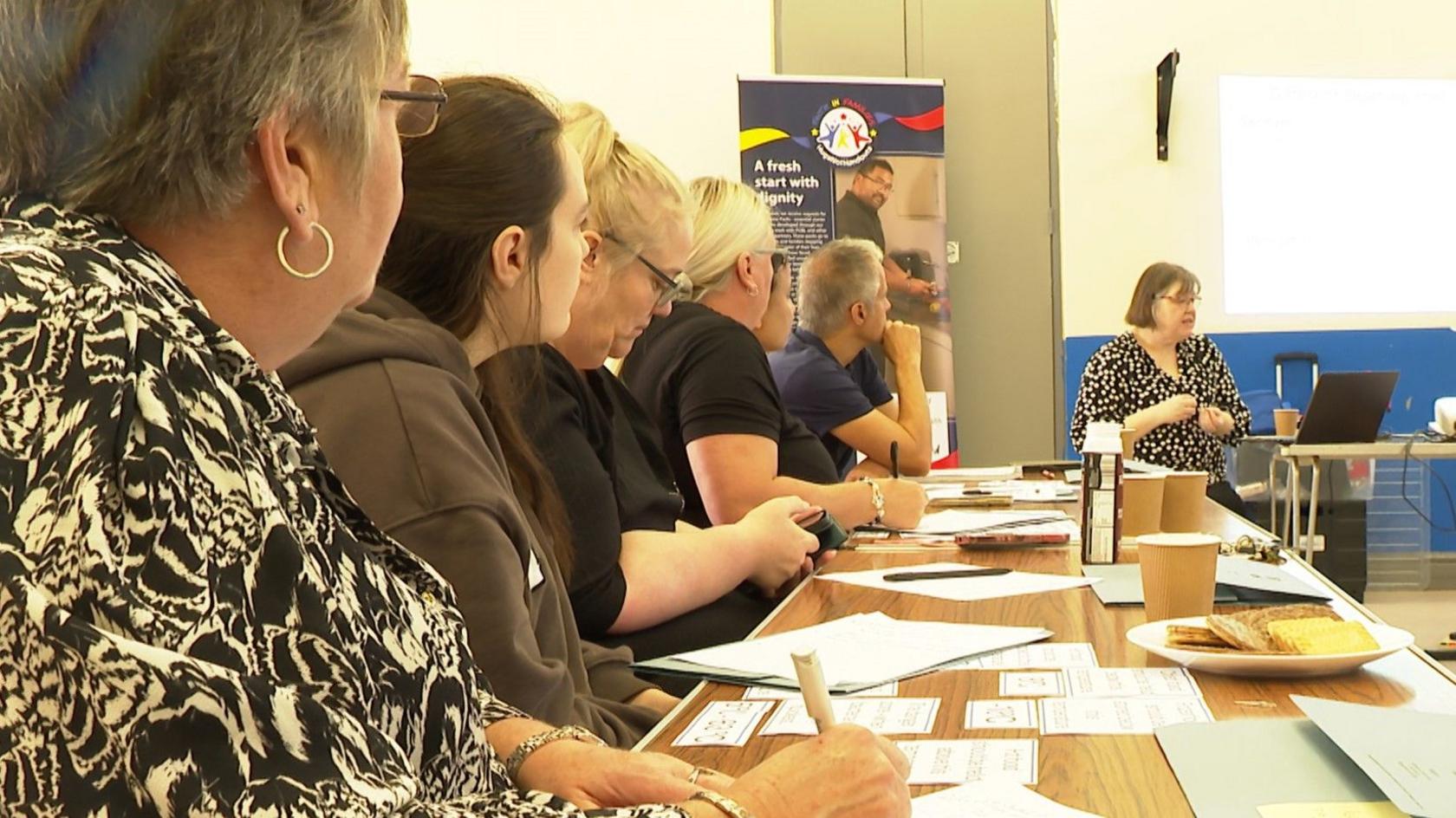
Training opportunities are available for people looking to get back into work
He said his company consistently beat targets for helping people back into work, but argued that the current project-specific funding for training did not go far enough.
"If the Welsh government is serious about reducing the percentage of economically inactive adults within Wales, then it needs to put its money where its mouth is and fund a national employability programme which will work with employers, work with training providers, to make sure that we get the numbers of people that need to be upskilled and become economically active," he said.
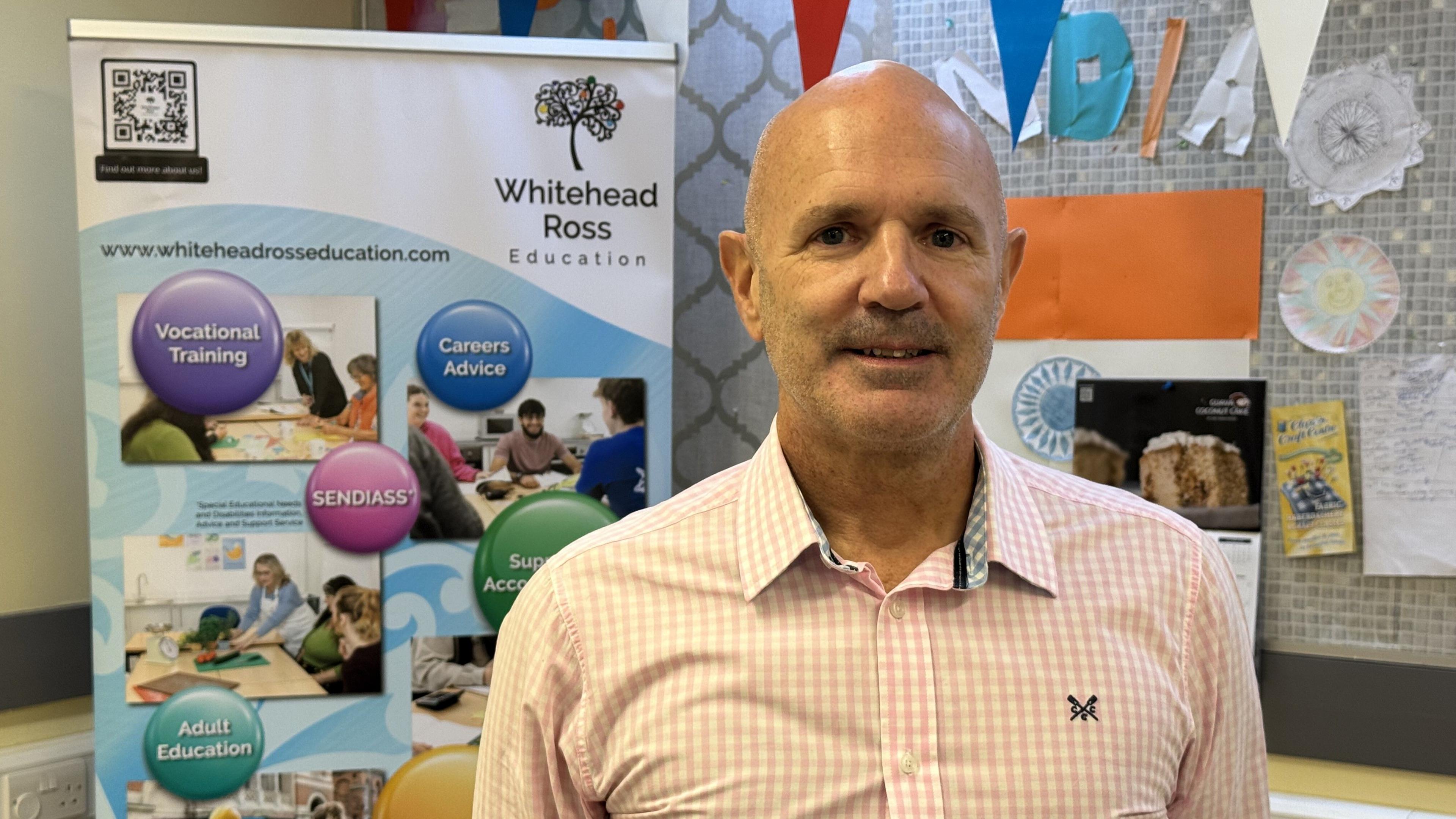
"The Welsh government needs to put its money where its mouth is," says Rhys Lloyd
Mr Lloyd was speaking at a skills session in Bonymaen where attendees were gaining a food hygiene qualification.
They included 53-year-old Sarah Kaighin from Birchgrove in Swansea.
"I am not working at the moment, I am currently off with not very good health," she said.
"But I am looking to start work again shortly, in the future.
"I used to work in catering and would like to continue to do that. So I thought this would be a good course to go on, to benefit me in the future."
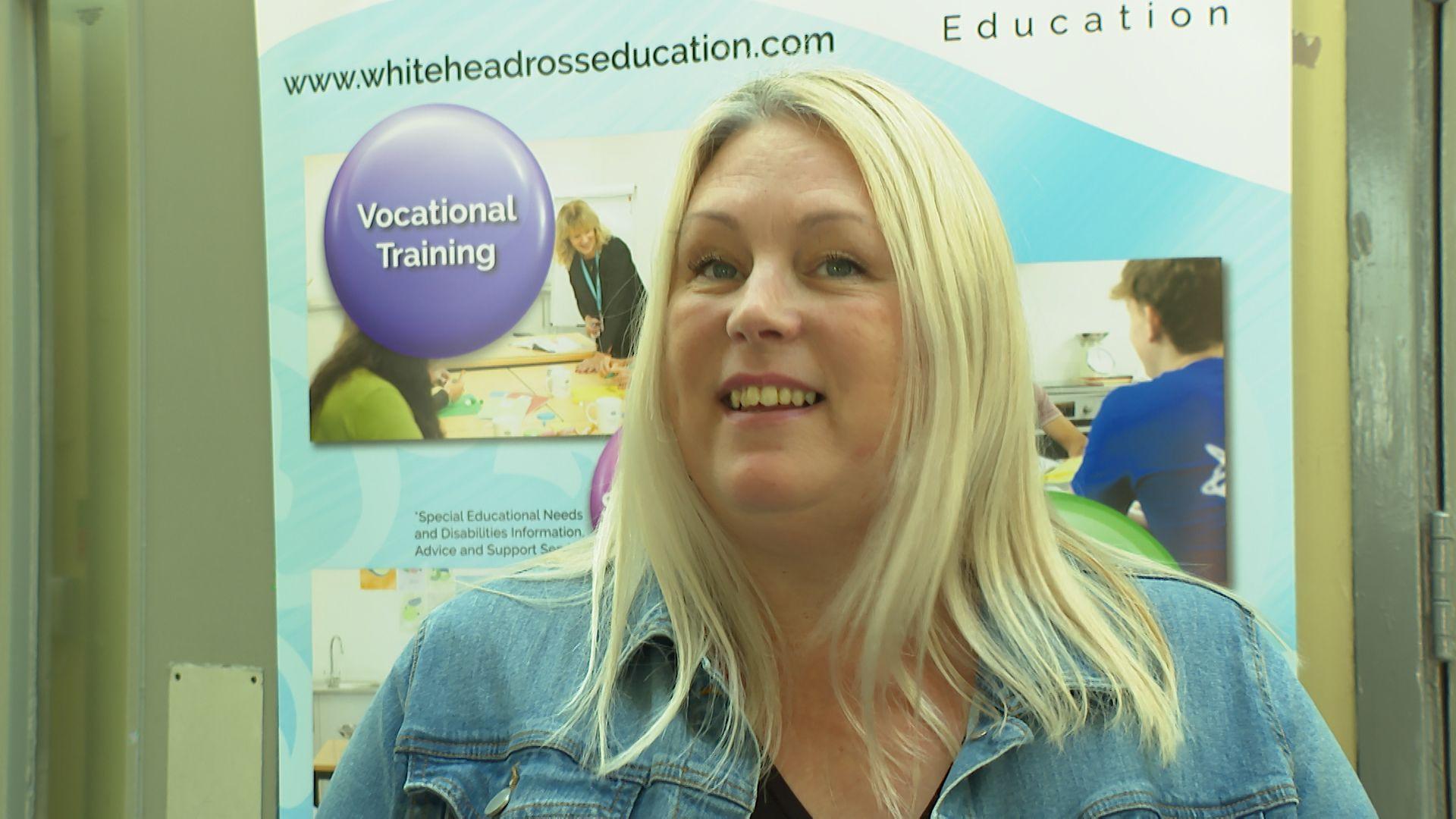
Sarah Kaighin says she is looking to return to work in the future
Mr Lloyd said more people like Sarah could be helped back into work if the funding was available.
"I think having a national, coordinated approach would ensure that training providers and employers work together with referring agencies such as Job Centre Plus to make sure that we are delivering the right kind of qualifications," he said.
The Welsh government said: "Our range of employability programmes helped more than 20,000 out-of-work people last year.
"We are currently reviewing these programmes to ensure that future provision evolves with changing needs. Work is already under way to bring our key employability programmes (ReAct +, Jobs Growth Wales+ and Communities for Work+) together.
"This year we worked with the UK government to provide up to £10m to trial new ways to support people who are economically inactive into work through our Economic Inactivity Trailblazer pilots."
Related topics
More top stories
- Published13 October

- Published13 October

